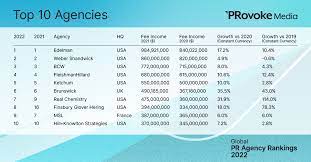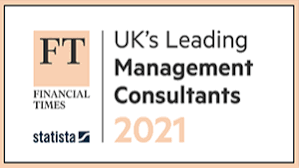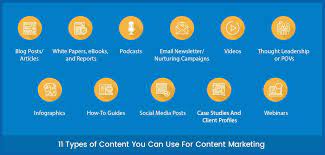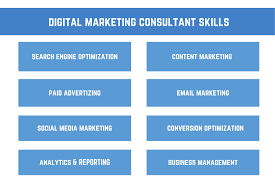Strategies for Success: Navigating the Dynamic Business Landscape with Confidence
Title: Effective Strategies for Success in Today’s Dynamic Business Landscape
Introduction:
In today’s rapidly changing business landscape, having effective strategies is crucial for achieving success and staying ahead of the competition. A well-defined strategy provides a roadmap to guide businesses towards their goals and enables them to make informed decisions. In this article, we will explore some key strategies that can help businesses thrive in the dynamic marketplace.
Clear Vision and Goal Setting:
A successful strategy begins with a clear vision of where the business wants to be in the future. By defining a compelling vision, businesses can align their efforts towards a common goal. Additionally, setting specific, measurable, achievable, relevant, and time-bound (SMART) goals helps create focus and serves as a benchmark for progress.
Market Research and Analysis:
Understanding the market landscape is essential for developing effective strategies. Conducting thorough market research helps identify customer needs, industry trends, and competitor analysis. This information empowers businesses to tailor their products or services to meet customer demands effectively while differentiating themselves from competitors.
Targeted Marketing and Communication:
An integral part of any successful strategy is reaching the right audience with the right message. By identifying target markets and creating tailored marketing campaigns, businesses can maximize their impact. Utilizing various channels such as social media platforms, content marketing, influencer collaborations, and traditional advertising ensures that messages reach the intended audience.
Innovation and Adaptability:
Innovation plays a vital role in staying ahead in today’s fast-paced business environment. Embracing new technologies, processes, or product/service enhancements allows businesses to adapt quickly to changing customer preferences or market demands. Creating a culture that encourages innovation fosters creativity within teams and promotes continuous improvement.
Collaboration and Partnerships:
Collaboration with other businesses or industry partners can lead to mutually beneficial outcomes. Strategic partnerships allow companies to leverage each other’s strengths and resources while expanding their reach into new markets. By working together, businesses can achieve shared goals and gain a competitive advantage.
Data-Driven Decision Making:
In the era of big data, leveraging data analytics is crucial for making informed decisions. By collecting and analyzing relevant data, businesses gain insights into customer behavior, market trends, and operational efficiency. This information enables them to make strategic decisions that drive growth and optimize performance.
Continuous Evaluation and Adaptation:
Successful strategies require continuous evaluation to ensure they remain relevant and effective. Regularly reviewing key performance indicators (KPIs) allows businesses to identify areas for improvement and make necessary adjustments. Adapting strategies based on market feedback and changing circumstances ensures long-term success.
Conclusion:
In today’s dynamic business landscape, effective strategies are indispensable for achieving sustainable success. By having a clear vision, conducting thorough market research, targeting marketing efforts, fostering innovation, collaborating with partners, leveraging data analytics, and continuously evaluating and adapting strategies, businesses can position themselves for growth and stay ahead of the competition. Embracing these strategies will enable businesses to navigate the challenges of the ever-changing marketplace with confidence.
9 Effective Strategies for Goal Achievement: A Practical Guide
- Set clear and achievable goals – make sure your goals are realistic, measurable and have a timeline.
- Make a plan – break down the steps needed to reach your goal into manageable chunks.
- Monitor progress – keep track of how you are progressing towards your goal and adjust accordingly if necessary.
- Stay focused – keep distractions away and stay on task to achieve the desired outcome more quickly.
- Prioritise tasks – focus on the most important tasks first, then move onto secondary ones as time allows for them.
- Utilise resources – ask for help or use any resources available to you that can help you achieve your goal faster or more efficiently
- Take breaks – it’s important to take regular breaks in order to remain productive and avoid burnout from overworking yourself
- Celebrate successes – reward yourself when milestones are reached so that you stay motivated throughout the process
- Reflect & adapt – review what has worked well, what could be improved upon, and adjust strategies accordingly
Set clear and achievable goals – make sure your goals are realistic, measurable and have a timeline.
Setting Clear and Achievable Goals: The Key to Strategy Success
When it comes to developing effective strategies, setting clear and achievable goals is an essential step. Goals provide businesses with direction, focus, and a sense of purpose. However, it is crucial to ensure that these goals are not just wishful thinking but are realistic, measurable, and have a timeline.
Setting realistic goals means being honest about what can be achieved within the given resources, capabilities, and market conditions. Unrealistic goals can lead to frustration and demotivation if they are too ambitious or unattainable. By setting goals that are within reach but still challenging, businesses can maintain motivation and drive while making steady progress towards their objectives.
Measurable goals allow businesses to track their progress objectively. Without measurable criteria, it becomes difficult to determine whether the goals have been achieved or if adjustments need to be made along the way. By defining specific metrics or milestones that can be quantified or observed, businesses gain clarity on their progress towards achieving the desired outcomes.
Having a timeline for goals provides a sense of urgency and helps prioritize efforts. Without deadlines or timeframes attached to goals, there is a risk of procrastination or losing sight of the objective altogether. A well-defined timeline creates a sense of accountability and encourages businesses to take consistent action towards achieving their goals.
By setting clear and achievable goals that are realistic, measurable, and have a timeline, businesses can enjoy several benefits:
- Focus: Clear goals provide clarity on what needs to be accomplished. They help align efforts across teams and departments towards a common objective.
- Motivation: Achievable goals inspire motivation as they offer a sense of purpose and progress. Milestones along the way provide opportunities for celebration and reinforcement.
- Evaluation: Measurable criteria enable businesses to evaluate their performance objectively. This evaluation allows for course correction if necessary or celebrating successes along the way.
- Efficiency: Having clear objectives helps businesses allocate resources effectively, ensuring that efforts are directed towards activities that contribute to goal attainment.
- Growth: Achieving goals boosts confidence and encourages businesses to set more ambitious targets, fostering a culture of continuous improvement and growth.
In conclusion, setting clear and achievable goals is a fundamental aspect of effective strategies. By ensuring that goals are realistic, measurable, and have a timeline, businesses can stay focused, motivated, and on track towards success. With each milestone achieved, businesses move closer to their vision while building momentum and confidence along the way.
Make a plan – break down the steps needed to reach your goal into manageable chunks.
Title: Making a Plan: Breaking Down Steps for Success
In the pursuit of any goal, having a well-defined plan is crucial. One effective strategy to ensure success is to break down the steps needed to reach your goal into manageable chunks. By doing so, you can navigate the path towards your objective with clarity and confidence.
When faced with a seemingly daunting task or ambitious goal, it’s easy to feel overwhelmed. However, by breaking it down into smaller, actionable steps, you gain a sense of control and direction. Here’s why making a plan and breaking it down into manageable chunks is an essential strategy for success:
Clarity and Focus:
Breaking down your goal into smaller steps provides clarity on what needs to be done. It allows you to focus on one task at a time rather than feeling overwhelmed by the entire project. This approach makes it easier to prioritize tasks and allocate resources effectively.
Progress Tracking:
By dividing your goal into smaller milestones or tasks, you can track your progress more effectively. Each completed step serves as an accomplishment that motivates and encourages you to move forward. Celebrating these small victories boosts morale and keeps you motivated throughout the journey.
Problem Solving:
When faced with complex challenges or obstacles along the way, breaking them down into smaller components makes problem-solving more manageable. By addressing one issue at a time, you can develop effective solutions without feeling overwhelmed by the overall complexity.
Flexibility and Adaptability:
Breaking down your plan allows for greater flexibility and adaptability when circumstances change unexpectedly. As each step is separate from the others, adjustments can be made without disrupting the entire process significantly. This flexibility enables you to respond effectively to new opportunities or challenges that may arise during your journey.
Enhanced Efficiency:
By focusing on one task at a time, you can work more efficiently and avoid multitasking overload. Breaking down your plan enables better time management as you allocate resources and effort to each step accordingly. This approach helps prevent burnout and ensures that each task receives the attention it deserves.
Remember, making a plan and breaking it down into manageable chunks is not about diluting your ambition or settling for less. Instead, it empowers you to approach your goals strategically, ensuring that every step is well-thought-out and achievable.
So, whether you’re embarking on a personal project or striving to achieve professional milestones, take the time to make a plan and break it down into manageable steps. Embrace this strategy for success, and you’ll find yourself moving steadily towards your goals with confidence and clarity.
Monitor progress – keep track of how you are progressing towards your goal and adjust accordingly if necessary.
Title: Monitoring Progress: A Crucial Strategy for Goal Achievement
Introduction:
Setting goals is an essential part of any business strategy. However, it’s equally important to monitor progress along the way to ensure that you stay on track towards achieving those goals. Regularly assessing your progress allows you to identify potential obstacles, make necessary adjustments, and ultimately increase your chances of success. In this article, we will explore the significance of monitoring progress and how it contributes to effective goal achievement.
Assessing Progress:
Monitoring progress involves tracking your performance against predefined milestones or key performance indicators (KPIs). By regularly reviewing these metrics, you gain valuable insights into how well you are progressing towards your goal. This assessment provides a clearer picture of whether your strategies are working as intended or if adjustments are needed.
Identifying Obstacles:
During the monitoring process, it’s crucial to identify any obstacles or challenges that may hinder your progress. By staying vigilant and actively seeking out potential roadblocks, you can address them proactively. This might involve revisiting your strategies, reallocating resources, or seeking alternative solutions. Identifying obstacles early on helps prevent them from derailing your progress.
Making Necessary Adjustments:
Monitoring progress empowers you to make informed decisions about adjusting your strategies if required. It allows you to evaluate the effectiveness of your current approach and determine whether modifications are necessary for better results. By embracing flexibility and adaptability in response to changing circumstances, you can optimize your efforts and increase the likelihood of achieving your goals.
Maintaining Motivation:
Regularly monitoring progress also helps maintain motivation levels within teams. When individuals see tangible evidence of their efforts yielding positive results, it boosts morale and encourages them to continue striving towards the shared goal. On the other hand, identifying areas that need improvement can inspire individuals to find innovative solutions and push themselves further.
Enhancing Accountability:
Monitoring progress promotes accountability within teams and organizations. When everyone is aware that their progress is being tracked, it fosters a sense of responsibility and ownership. Individuals become more mindful of their contributions and are motivated to meet or exceed expectations. This collective effort towards goal achievement strengthens teamwork and overall organizational performance.
Conclusion:
Monitoring progress is an integral part of any successful strategy. By regularly assessing your performance, identifying obstacles, making necessary adjustments, maintaining motivation levels, and enhancing accountability, you significantly increase your chances of achieving your goals. Remember that monitoring progress is not about micromanaging or being overly critical; it’s about staying proactive, adapting to changing circumstances, and ensuring that you are on the right path towards success. Embrace this strategy as a valuable tool in your goal achievement journey.
Stay focused – keep distractions away and stay on task to achieve the desired outcome more quickly.
Title: The Power of Focus: Achieving Desired Outcomes with Fewer Distractions
In today’s fast-paced world, staying focused has become increasingly challenging. With numerous distractions vying for our attention, maintaining concentration on the task at hand can be a struggle. However, the ability to stay focused is a key strategy that can significantly impact our productivity and help us achieve our desired outcomes more quickly.
Distractions come in various forms, such as social media notifications, emails, phone calls, or even internal thoughts that divert our attention away from what truly matters. By consciously keeping these distractions at bay and staying on task, we unlock the potential to accomplish more in less time.
When we stay focused, we enter a state of flow where our minds are fully engaged in the present moment. This heightened concentration enables us to delve deeper into our work and produce higher-quality results. By eliminating distractions, we reduce the time wasted on switching between tasks and increase our efficiency.
To stay focused and minimize distractions:
- Create a conducive environment: Designate a dedicated workspace that is free from unnecessary disturbances. Minimize noise levels and keep your surroundings organized to promote clarity of thought.
- Prioritize tasks: Determine which tasks are most important and tackle them first. Prioritization helps maintain focus by directing your energy towards high-value activities rather than getting caught up in trivial matters.
- Set specific goals: Clearly define what you want to achieve within a given timeframe. Setting specific goals provides direction and motivation while keeping you on track.
- Break tasks into manageable chunks: Large projects can be overwhelming and lead to loss of focus. Break them down into smaller, achievable tasks that are easier to tackle one step at a time.
- Time management techniques: Utilize techniques such as the Pomodoro Technique or time blocking to allocate specific periods for uninterrupted work followed by short breaks. These methods help maintain focus while preventing burnout.
- Minimize digital distractions: Temporarily disable notifications on your phone or computer, and limit your access to social media platforms during focused work periods. Consider using website blockers or productivity apps to keep distractions at bay.
- Practice mindfulness: Incorporate mindfulness techniques, such as meditation or deep breathing exercises, into your routine. These practices enhance focus and reduce mental clutter, allowing you to stay present and engaged in your work.
By consciously implementing these strategies, you can develop the habit of staying focused and reap the rewards of increased productivity and efficiency. Remember that staying focused is not about completely eliminating all distractions but rather managing them effectively to maintain your concentration on what truly matters.
In conclusion, staying focused is a powerful strategy that enables us to achieve our desired outcomes more quickly. By keeping distractions at bay, we unlock our full potential and experience the satisfaction of accomplishing our goals with greater efficiency. Embrace the power of focus and witness the positive impact it has on both your personal and professional life.
Prioritise tasks – focus on the most important tasks first, then move onto secondary ones as time allows for them.
Title: Prioritise Tasks: The Key to Effective Strategy Execution
In today’s fast-paced world, where time is a precious commodity, mastering the art of prioritisation is essential for achieving success. By prioritising tasks effectively, individuals and businesses can focus their efforts on what truly matters, ensuring that the most important objectives are accomplished first. This strategy allows for efficient time management and maximises productivity.
Prioritisation starts with identifying the most critical tasks or goals that align with your overall strategy. These tasks should have a significant impact on your desired outcomes or contribute directly to your long-term objectives. By focusing on these high-priority tasks first, you ensure that you allocate your time and resources where they will yield the greatest results.
When prioritising tasks, it’s also important to consider deadlines and urgency. Some tasks may have strict deadlines or require immediate attention due to their time-sensitive nature. By addressing these urgent tasks promptly, you avoid unnecessary stress and prevent potential setbacks.
Another aspect of effective prioritisation is considering the dependencies between tasks. Some tasks may rely on others being completed first or require specific resources or information from other team members. By identifying these dependencies and adjusting your priorities accordingly, you can ensure a smooth workflow and avoid bottlenecks in project execution.
While it’s crucial to focus on high-priority tasks, it’s equally important to manage secondary or lower-priority tasks effectively. As time allows, allocate dedicated slots for these secondary tasks without compromising the completion of more critical ones. This approach prevents them from becoming neglected or overlooked while maintaining progress across multiple fronts.
To enhance task prioritisation further, consider using productivity tools such as task management software or creating a daily/weekly to-do list. These tools help visualise priorities and provide a clear roadmap for tackling each task systematically.
By implementing effective task prioritisation strategies, individuals and businesses can experience several benefits:
- Increased productivity: Focusing on high-priority tasks ensures that the most impactful work is accomplished efficiently.
- Reduced stress: By addressing urgent tasks promptly, you minimise the risk of missed deadlines and alleviate unnecessary pressure.
- Improved decision-making: Prioritisation allows for better decision-making as you allocate resources and time towards tasks that align with your strategic goals.
- Enhanced time management: By allocating time slots for secondary tasks, you maintain a balanced approach to task completion without neglecting important objectives.
In conclusion, prioritising tasks is a fundamental strategy for effective execution and goal attainment. By focusing on the most important tasks first, managing urgency, considering task dependencies, and allocating time for secondary tasks, individuals and businesses can optimise their productivity and achieve desired outcomes efficiently. Mastering this skill empowers individuals to make the most of their limited time while aligning their efforts with long-term strategic objectives.
Utilise resources – ask for help or use any resources available to you that can help you achieve your goal faster or more efficiently
Title: Leveraging Resources: Unlocking Efficiency and Accelerating Goal Achievement
In the pursuit of our goals, it is essential to recognize that we do not have to navigate the path alone. One valuable strategy for success is to utilize available resources and seek help when needed. By doing so, we can tap into a wealth of knowledge, expertise, and support that can propel us towards our objectives faster and more efficiently.
At times, we may hesitate to ask for help due to concerns about appearing incapable or reliant on others. However, it is important to remember that seeking assistance is not a sign of weakness but rather a demonstration of resourcefulness and a willingness to learn from others.
One way to harness resources effectively is by reaching out to individuals who possess the knowledge or skills required for our specific goals. This could be seeking guidance from mentors, industry experts, or colleagues with relevant experience. Their insights can provide fresh perspectives and practical advice that may significantly impact our progress.
Additionally, leveraging online platforms and communities can be immensely beneficial. Participating in forums or social media groups related to our field of interest can connect us with like-minded individuals who are willing to share their expertise or offer support. These platforms serve as valuable hubs for networking, collaboration, and accessing a diverse range of resources.
Furthermore, technology has made information more accessible than ever before. Online courses, tutorials, e-books, and podcasts are just a few examples of digital resources readily available at our fingertips. By taking advantage of these educational materials, we can enhance our skills and knowledge base without significant financial investments.
In some cases, outsourcing certain tasks or projects can also be an effective resource utilization strategy. Delegating responsibilities allows us to focus on core competencies while benefiting from the specialized skills of others. This approach not only saves time but also ensures that each aspect receives dedicated attention from experts in their respective fields.
Lastly, internal resources within organizations should not be overlooked. Colleagues, supervisors, or support staff can provide valuable assistance, whether it is sharing workload, providing guidance, or collaborating on projects. By fostering a culture of teamwork and open communication, we can create an environment where everyone feels comfortable seeking and offering help.
In conclusion, leveraging available resources is a powerful strategy for achieving our goals faster and more efficiently. Whether it is seeking guidance from mentors, utilizing online platforms and communities, accessing educational materials, outsourcing tasks, or tapping into internal resources within organizations, the key lies in recognizing that we do not have to face challenges alone. By embracing resourcefulness and actively seeking help when needed, we open ourselves up to a world of possibilities and increase our chances of success.
Take breaks – it’s important to take regular breaks in order to remain productive and avoid burnout from overworking yourself
Title: The Power of Taking Breaks: Maintaining Productivity and Preventing Burnout
In our fast-paced and demanding work environments, it’s easy to fall into the trap of thinking that constant busyness equates to productivity. However, research and experience have shown that taking regular breaks is not only essential for maintaining productivity but also for preventing burnout caused by overworking ourselves.
When we continuously work without breaks, our concentration and focus diminish over time. Our brains become fatigued, leading to decreased efficiency and creativity. On the other hand, incorporating short breaks into our work routine allows us to recharge mentally and physically, resulting in increased productivity.
Taking breaks offers several benefits. Firstly, it helps to combat mental fatigue. Stepping away from our tasks for a few minutes allows our minds to rest and reset. This break gives us an opportunity to engage in activities that help us relax or clear our minds, such as going for a short walk, practicing deep breathing exercises, or simply enjoying a cup of tea or coffee.
Additionally, breaks provide an opportunity for reflection and problem-solving. Stepping back from our work allows us to gain perspective on challenges we may be facing. It enables us to approach problems with a fresh mindset and often leads to more innovative solutions.
Furthermore, taking regular breaks helps prevent burnout. Overworking ourselves without giving our bodies and minds time to rest can lead to exhaustion, decreased motivation, and even physical health issues. By incorporating breaks into our work routine, we give ourselves the chance to recharge and maintain a healthy work-life balance.
To make the most of your breaks, it’s important to use them intentionally. Avoid spending your break time engaging in activities that may further drain your energy or distract you from returning refreshed. Instead, engage in activities that truly help you relax or rejuvenate—whether it’s reading a book, listening to music, practicing mindfulness exercises or engaging in light physical activity.
In conclusion, taking breaks is not a sign of laziness or unproductivity; it is a strategic approach to maintaining focus, enhancing creativity, and preventing burnout. By incorporating regular breaks into our work routine, we can sustain our productivity levels, improve our overall well-being, and achieve better results in the long run. So remember, pause, breathe, and take those well-deserved breaks for a healthier and more productive work life.
Celebrate successes – reward yourself when milestones are reached so that you stay motivated throughout the process
Title: Celebrate Successes: A Key Strategy to Stay Motivated on the Path to Achievement
Introduction:
Embarking on a journey towards achieving our goals requires dedication, perseverance, and unwavering motivation. While it’s essential to stay focused on the end goal, it’s equally important to celebrate the milestones along the way. By rewarding ourselves when we reach significant milestones, we can maintain our motivation and enthusiasm throughout the entire process.
Recognizing Achievements:
When we set goals for ourselves, it’s crucial to break them down into smaller milestones or targets. These milestones serve as checkpoints that mark our progress and keep us motivated. When we successfully reach one of these milestones, it’s an achievement worth celebrating.
Importance of Celebration:
Celebrating successes is more than just a momentary indulgence; it serves as a powerful motivator. By acknowledging our accomplishments, we reinforce positive behavior and boost our confidence in our abilities. Celebrations provide a well-deserved break from the daily grind and remind us of how far we’ve come on our journey towards success.
Maintaining Motivation:
The path to achieving our goals can be challenging and demanding at times. It’s natural to experience moments of self-doubt or fatigue along the way. However, by incorporating celebrations into our strategy, we create moments of joy and rejuvenation that help us stay motivated during these challenging periods.
Rewarding Yourself:
When celebrating successes, it’s important to choose rewards that are meaningful and aligned with your personal preferences. It could be treating yourself to a special meal at your favorite restaurant, indulging in a spa day, taking a weekend getaway, or simply spending quality time with loved ones. The key is to choose rewards that bring you joy and serve as a reminder of your hard work paying off.
Building Momentum:
Celebrating successes not only boosts motivation but also helps build momentum for future achievements. Each celebration serves as a milestone marker that propels us forward, giving us the confidence and drive to tackle the next challenge. It creates a positive cycle of accomplishment, motivation, and progress towards our ultimate goal.
Conclusion:
In the pursuit of our goals, celebrating successes is a crucial strategy that keeps us motivated and energized throughout the process. By acknowledging and rewarding ourselves when we reach significant milestones, we reinforce positive behavior, boost confidence, and build momentum towards achieving our ultimate objective. So, remember to take the time to celebrate your successes along the way – you’ve earned it!
Reflect & adapt – review what has worked well, what could be improved upon, and adjust strategies accordingly
Reflect & Adapt: The Key to Strategy Success
In the fast-paced and ever-evolving business world, it is essential to regularly reflect on your strategies and adapt them accordingly. This simple yet powerful tip can make a significant difference in achieving success and staying ahead of the competition.
Reflection allows you to take a step back and objectively evaluate what has worked well for your business. By identifying successful strategies, you can understand what contributed to their effectiveness and leverage those insights in future decision-making. Whether it’s a marketing campaign that generated high engagement or a product feature that received positive feedback, acknowledging these successes is crucial for building upon them.
Equally important is assessing areas that could be improved upon. No strategy is perfect, and there is always room for growth and refinement. By honestly evaluating the aspects that didn’t yield desired results or fell short of expectations, you can identify potential gaps or weaknesses. This self-awareness enables you to make informed adjustments and avoid repeating the same mistakes.
Once you have reflected on both successes and areas for improvement, it’s time to adapt your strategies accordingly. This means making necessary adjustments based on the insights gained from reflection. It could involve refining your target audience, modifying marketing tactics, enhancing product features, or even redefining your overall business approach.
Adaptation should be an ongoing process rather than a one-time event. The business landscape is constantly changing, with new trends emerging and customer preferences evolving. By continuously reviewing your strategies and adapting them as needed, you ensure that they remain aligned with current market dynamics.
Reflecting and adapting also foster a culture of continuous improvement within your organization. Encourage open dialogue among team members to share their observations and insights. Embrace constructive criticism as an opportunity for growth rather than viewing it as a setback. By creating an environment where reflection and adaptation are valued, you empower your team to contribute their ideas towards refining strategies collectively.
In conclusion, reflecting on what has worked well, identifying areas for improvement, and adapting strategies accordingly is a fundamental principle for success in today’s business landscape. By taking the time to evaluate your strategies and make necessary adjustments, you position your business for growth and resilience. Embrace the power of reflection and adaptation, and watch as your strategies evolve to meet the ever-changing demands of the market.









